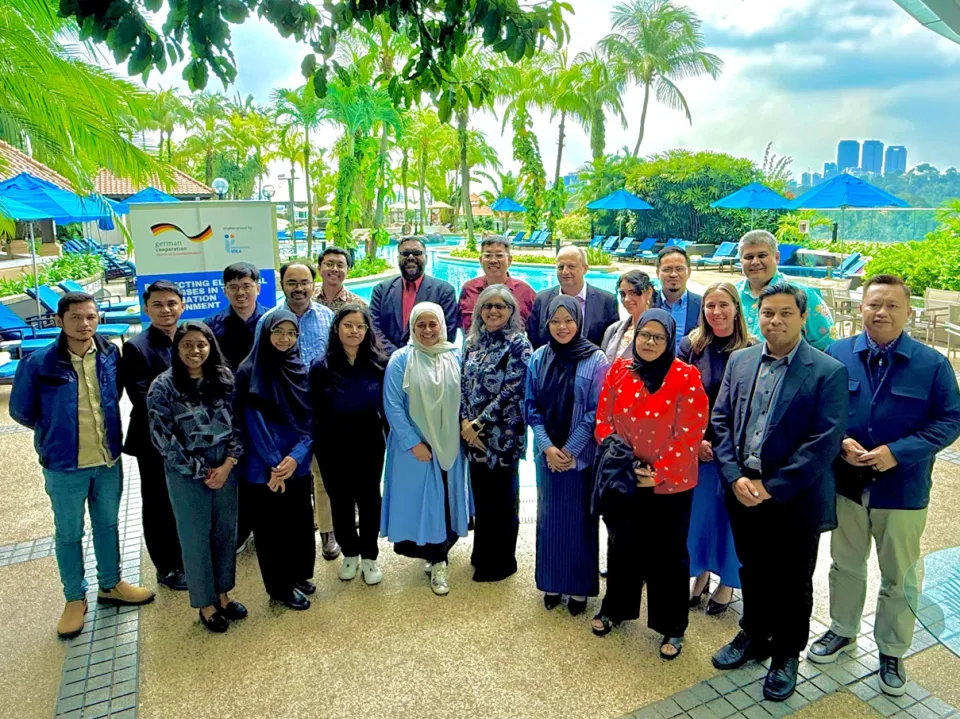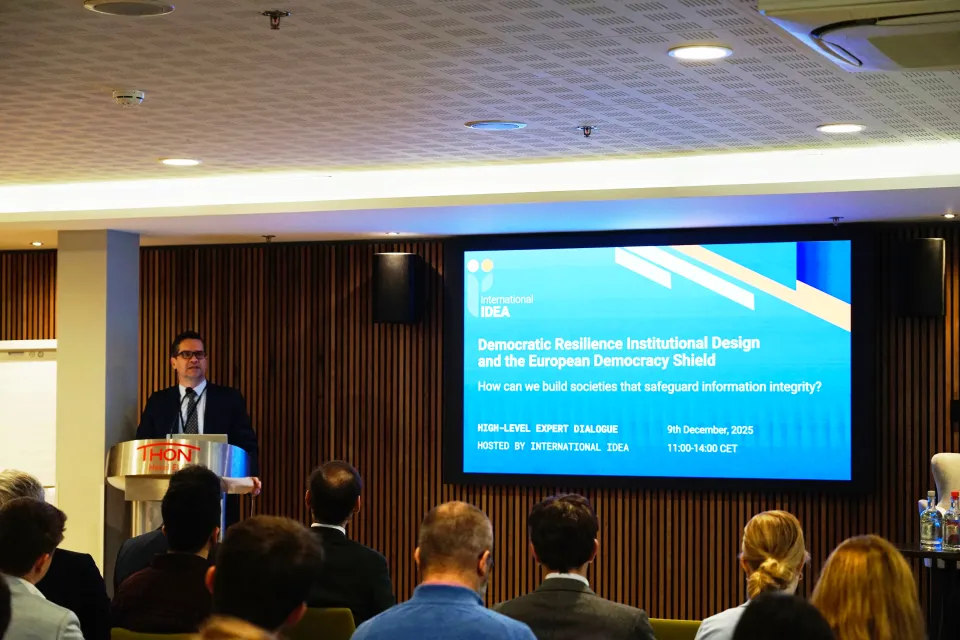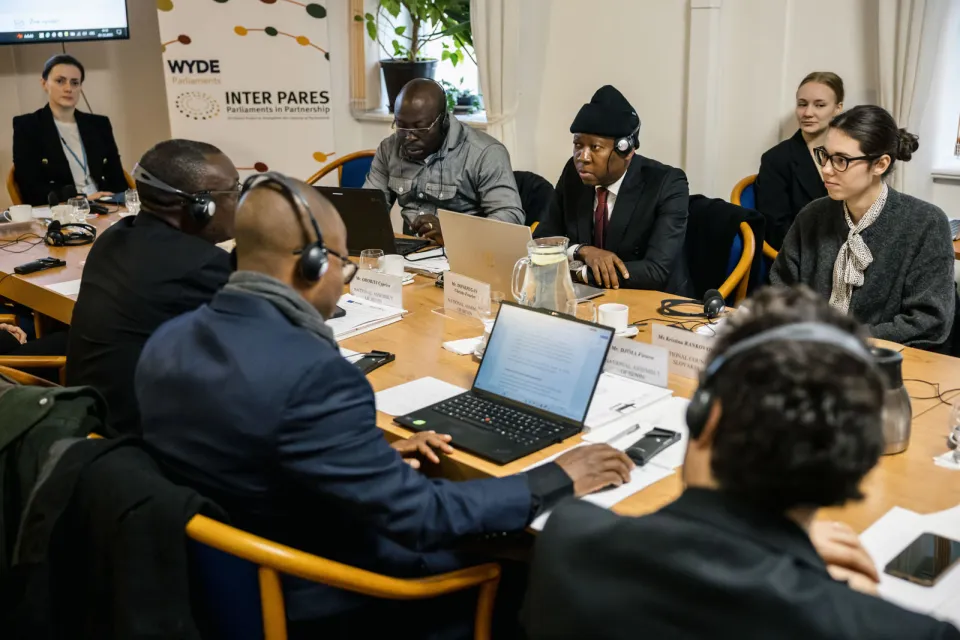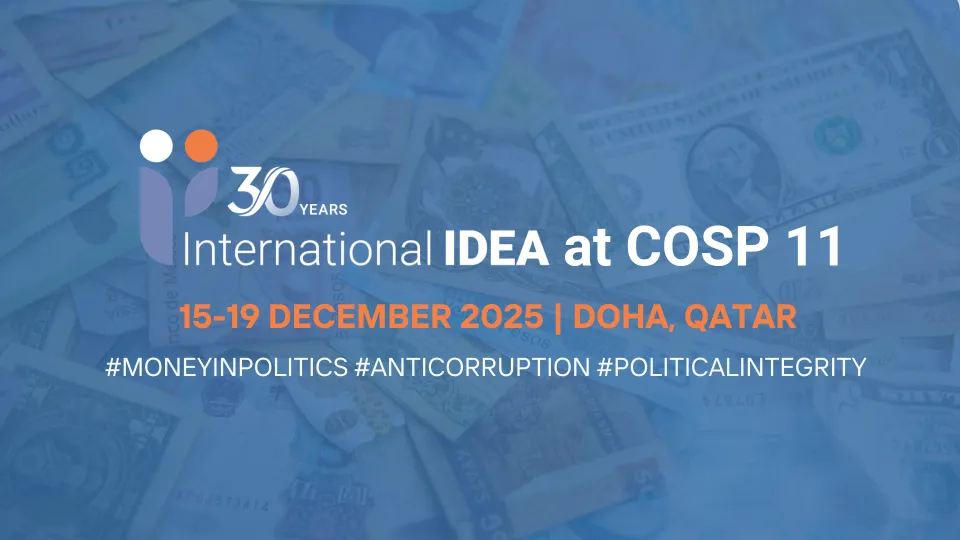"Democratic Transitions: Conversations with World Leaders" launched by International IDEA and the European Parliament
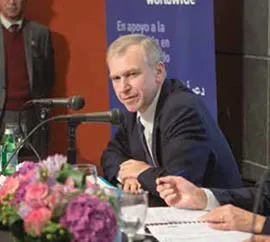
BRUSSELS, 13 OCTOBER 2015--The International Institute for Democracy and Electoral Assistance (International IDEA) and the European Parliament, in cooperation with the Friends of Europe, today launched Democratic Transitions: Conversations with World Leaders at an event at the Library of the European Parliament in Brussels.
The book was launched in the presence of Moncef Marzouki (Former President of Tunisia) and Aleksander Kwaśniewski (Former President of Poland). Both gave introductory remarks as part of a discussion moderated by Shada Islam (Friends of Europe).
International IDEA Secretary-General Yves Leterme and Vice-President of the European Parliament Alexander Graf Lambsdorff also spoke during the event.
The speakers highlighted the fact that this is the first significant volume in any language that focuses on learning lessons from political leaders about promoting and managing democratic transitions.
The book, an initiative of International IDEA, is published in English by Johns Hopkins University Press, and presents personal reflections, both on ending authoritarian rule and on building democracy, by 13 former presidents from 9 countries across 5 continents who have played key roles in democratic transformations over the past 30 years.
The book was co-edited by Sergio Bitar and Abraham F. Lowenthal and contains a preface by Yves Leterme in which he states, “What neither we nor others have thus far contributed is first-hand testimony from top political leaders about how transitions toward democracy have been achieved in different continents. This exciting publication fills that critical gap.”
The editors conclude that 10 imperatives should guide the crafting of democratic transitions. These lessons apply to political leaders but are also relevant to other participants on the global stage.
- Combat repression by moving forward incrementally
- Project a positive and inclusive vision for democratic change
- Build convergence and coalitions among opposition forces
- Create spaces for dialogue between democratic movements and authoritarian regimes
- Act firmly but carefully to achieve democratic civilian control of security services
- Craft workable constitutions through inclusive processes
- Manage economic tensions to combine growth with equity
- Invest early on in building and institutionalizing vibrant political parties
- Foster transitional justice and collective memory
- Draw on external support from governmental and non-governmental actors
Kofi Annan, former Secretary-General of the United Nations, and founder and chair of the Kofi Annan Foundation for better global governance, describes the book in the following terms:
“The pragmatic wisdom and unique outlook of the experienced political leaders interviewed in Democratic Transitions are critical to the global dialogue on building open, democratic, and sustainable societies. The lessons of their failures and successes can help others to overcome tenacious global challenges, and support democratic transitions of political power.”
Francis Fukuyama, Professor at Stanford University wrote:
“Democratic Transitions accomplishes a remarkable feat, providing a readable and engaging history of the Third Wave of democratization for general readers and students, while filling in countless important details that specialists will appreciate. The lessons the editors draw from the unique individuals they interviewed provide critical guidelines for future political leaders and for those who want to help build democracies.”
